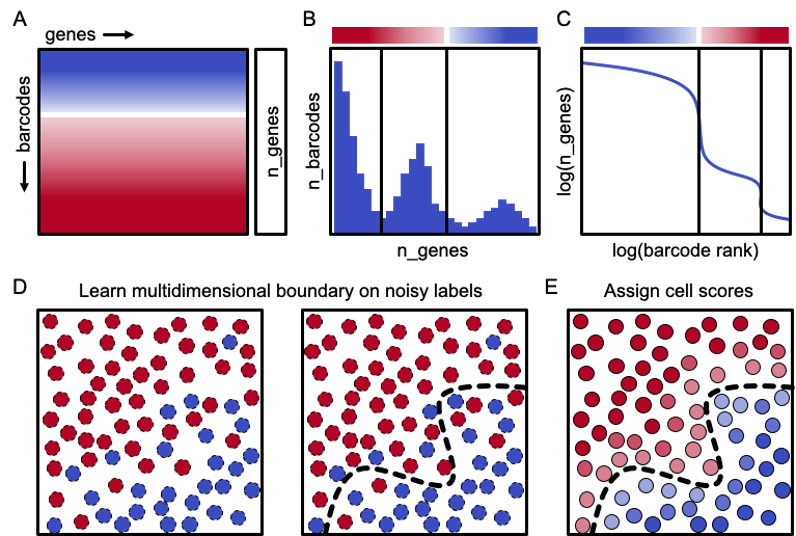Abstract
A major challenge for droplet-based single-cell sequencing technologies is distinguishing true cells from uninformative barcodes in datasets with disparate library sizes confounded by high technical noise (i.e. batch-specific ambient RNA). We present dropkick, a fully automated software tool for quality control and filtering of single-cell RNA sequencing (scRNA-seq) data with a focus on excluding ambient barcodes and recovering real cells bordering the quality threshold. By automatically determining dataset-specific training labels based on predictive global heuristics, dropkick learns a gene-based representation of real cells and ambient noise, calculating a cell probability score for each barcode. Using simulated and real-world scRNA-seq data, we benchmarked dropkick against conventional thresholding approaches and EmptyDrops, a popular computational method, demonstrating greater recovery of rare cell types and exclusion of empty droplets and noisy, uninformative barcodes. We show for both low and high-background datasets that dropkick’s weakly supervised model reliably learns which genes are enriched in ambient barcodes and draws a multidimensional boundary that is more robust to dataset-specific variation than existing filtering approaches. dropkick provides a fast, automated tool for reproducible cell identification from scRNA-seq data that is critical to downstream analysis and compatible with popular single-cell Python packages.
Where applicable, full text and supplement provided for fair use.